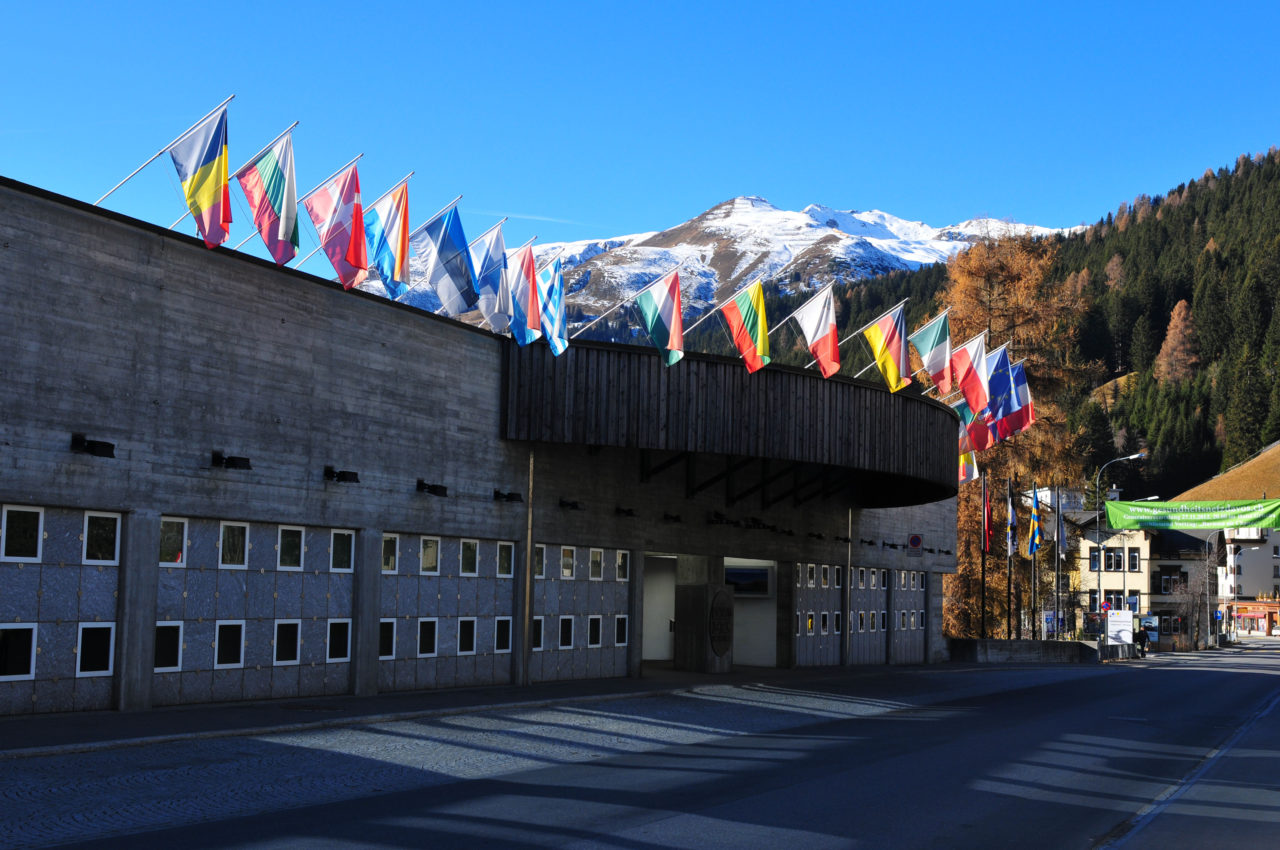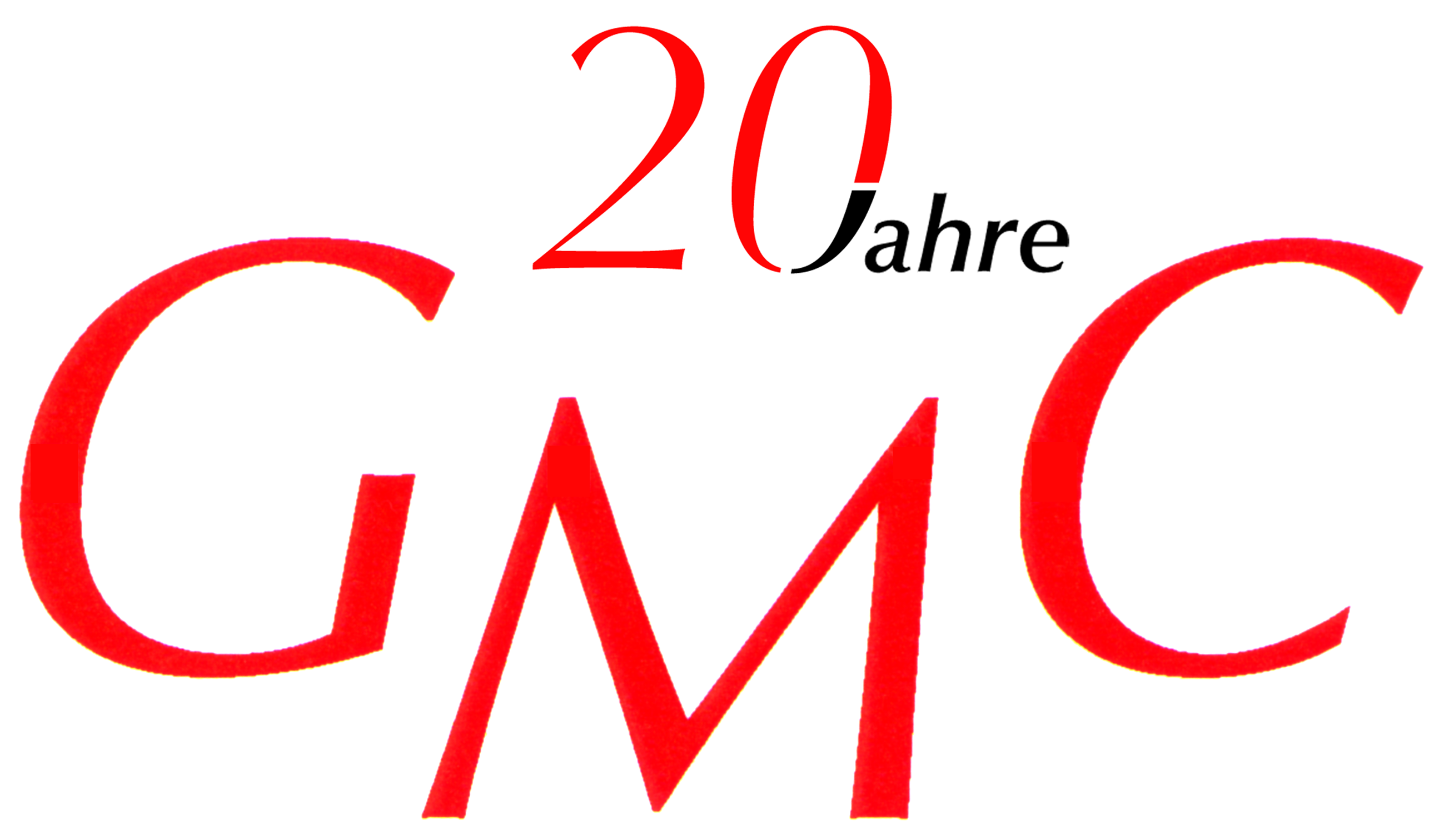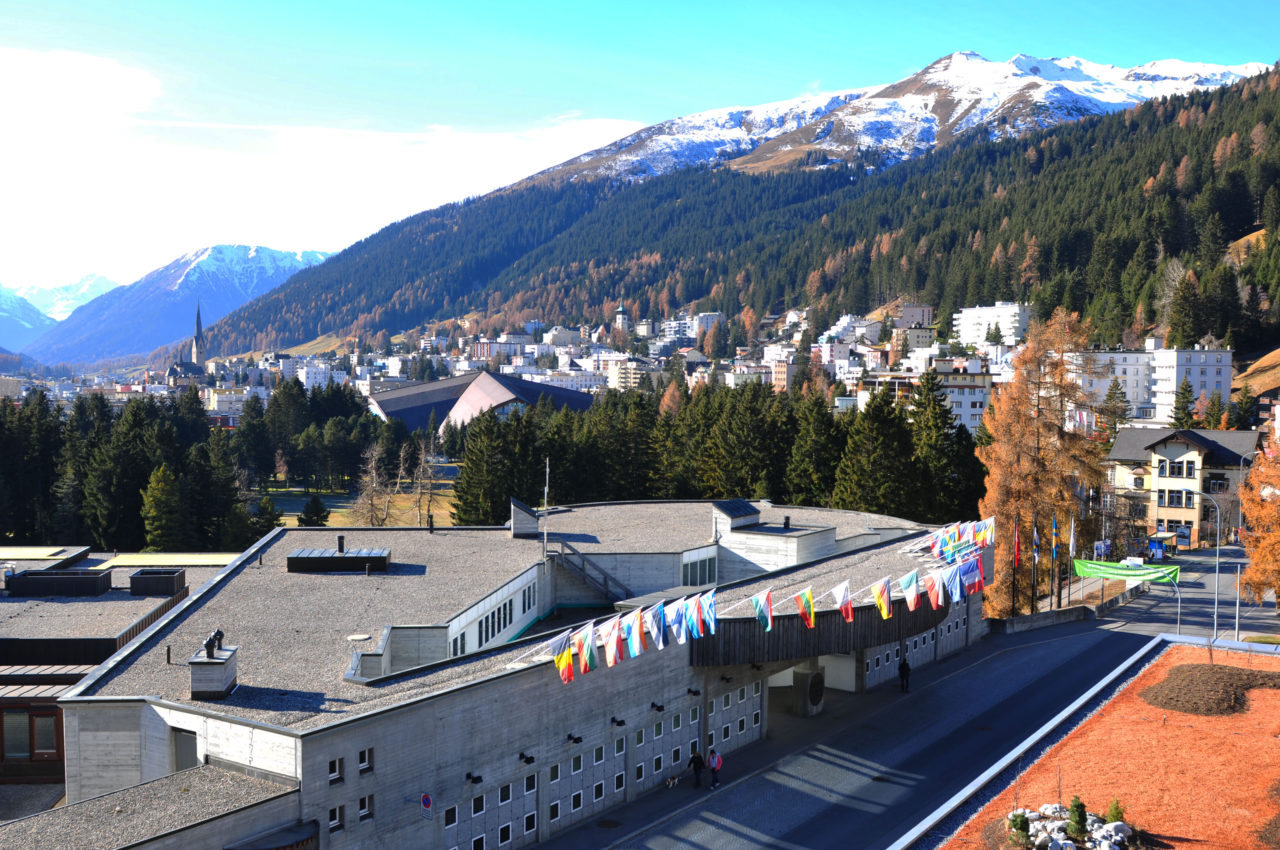
The WEF Congress Center of Davos, Europe’s highest city in the Swiss Alps
Welcome to Switzerland, and to Davos, for this year’s World Economic Forum Annual Meeting.
It is a pleasure and a great honour for Switzerland to host so many people from around the world, who are ready to reflect together on the future of our society and the movements that influence and enrich it. The Annual Meeting in Davos is an important event in the political, social and economic calendar.
If we look back at the events of the last few years, we can see that we do indeed have a responsibility to act on this year’s motto, ‘to strengthen cooperation in a fractured world’.
If 2016 was a year of disruption, surprises, shattered certainties and unexpected changes, 2017 proved to be a year of conciliation. But what does 2018 have in store? Maybe by the end of this year, we will come to the paradoxical conclusion that disruption has emerged not from the extreme fringes of society, but from its centre. And economic and social progress also has its root in the heart of society.
If we are to continue on the path of progress, I am convinced that 2018 must be the year of international cooperation and multilateralism. Our common responsibility, not only towards our own populations, but also towards the world, must once again be afforded its rightful place – namely, right at the top of our list of priorities.
Today we face a whole host of major challenges.
• We are witnessing the emergence of geopolitical upheavals and instability in many parts of the world.
• We are witnessing protracted armed conflicts, which are destabilising entire societies and economies, resulting in huge population movements and feeding terrorism.
• And then there’s climate change and global inequality.
To reduce these uncertainties, and guarantee security and prosperity, there has to be the political will at all levels, there needs to be a partnership between national and international institutions, as well as a strong will on the part of financial institutions. There needs to be a strong and concerted commitment on the part of international institutions towards security, peace and human rights.
And yet, the tendency in certain parts of the world is in the opposite direction: towards a more inward looking approach, a re-focusing on national interests, a narrowing of the political horizon accompanied by a certain distrust of multilateralism and free trade.
These developments risk producing a more fractured world. I am convinced that we instead need to promote international cooperation. Because if we were to cease tackling international challenges together, we would jeopardise prospects for political stability, good governance and economic development. We must bear in mind that if this general distrust continues to spread, it is precisely the poorest and most fragile who will be the first to suffer.
That of course requires political support at national level. There is no such thing as international cooperation if no states are willing to work together. And for that there needs to be strong roots, firm domestic support, and confidence in collective thought and action.
If there is fear, the instinct is to raise the barricades. In order to guarantee openness, exchange and cooperation, people must trust that their country will support and protect them. Without strong support at home, foreign policy risks being nothing more than empty words.
The strong growth of the global economy feeds the illusion that nationalist and protectionist movements were just a passing phase. But they are not. Economic ‘good news’ stories must not blind us – we need to tackle far-reaching structural problems.
The lesson of the last two years is clear, and still applies: The mainstream of society must see society as being fair – otherwise it will use its veto.
There is only one solution: to remove the underlying causes of that unease, resentment and anger. Through a policy of social inclusion – ranging from educational opportunities for everybody to a social state that mobilises people’s talents to a fiscal policy that allows us to invest in social cohesion.
Our continued openness to the world, and the will to cooperate internationally, can only be guaranteed, if people do not feel powerless. Our societies can only function if people feel that they can control developments like globalisation or immigration.
The US political theorist John Ikenberry reminds us of the ‘formula for success’ in the post-war years: “Sustained domestic support for openness, post-war leaders knew, would be possible only if countries also established social protections and regulations that safeguarded economic stability. The Atlantic Charter, announced by Roosevelt and Winston Churchill in 1941, and the Bretton Woods agreements of 1944, were early efforts to articulate a vision of economic openness and social stability.”
Are things really so different today? I don’t believe so. Most people have no objection to openness and exchange – as long as they feel secure. And they can only feel secure, if they have economic opportunities.
What does a country need to remain competitive over a long period of time?
• Stability and functioning institutions
• Good infrastructure
• An educational system that produces innovative minds
• And above all: equal opportunities.
Equal opportunities which allow men and women to exploit their potential – for the benefit of society. Actually, it is clear that the better the educational and life opportunities people have, the greater a country’s innovative strength. And the better women’s position in the labour market, the stronger the economy is.
Over the past decades, the welfare state and the market economy have often been played off against each other. The game was wrong, as well as the assumptions.
After all, uncertainty and social injustice do not lead to economic prosperity, fear is not productive, it does not drive innovation.
The opposite is true. Security in society gives us the freedom to try out new ideas. Economic security gives us the courage to bring out the best in ourselves. And societies in which income is fairly distributed, and in which there is equal access to the health system also generate more trust among their members. This is essential for a country to attract business, because no-one invests without trust.
Is this an argument in favour of the primacy of politics? No, it isn’t. We need a balance between politics and economics. Just as we need a balance between competitiveness on the one hand and social solidarity and fair educational opportunities on the other.
It is not the primacy of politics that we need, it is the primacy of the political.
We need to recognise that political considerations form the basis of our society, and of our value system – not only the material aspects of people’s lives, but also their attitudes, feelings and expectations. This includes the rule of law, human rights and democracy – and not least our sense of responsibility for the world’s problems.
Only if we base our actions on the primacy of the political can we oppose to the attitude of resistance, frustration and mistrust. Only thus – by strengthening political legitimacy domestically – can we strengthen international relations and cooperation.
Let us make 2018 a year in which we overcome the phase of hand-wringing and self-criticism, in which each of us works to promote social inclusion.

